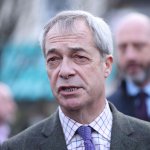ishi Sunak faced a growing storm on Thursday after immigration to Britain hit a record of nearly 1.2 million last year, according to official figures.
They showed that 925,000 out of the total of 1,163,000 were non-EU nationals after the UK quit the European Union. Once emigration of 557,000 is taken into account, net migration was also at a record high of 606,000 in 2022.
With tens of thousands of people crossing the Channel in small boats, the promise by Brexiteers that leaving the EU would allow the country to take back control of its borders appeared to be in tatters.
As his Government came under fire from Labour, the Liberal Democrats and some Tory MPs, the Prime Minister told ITV’s This Morning: “Numbers are too high, it’s as simple as that.”
Pressed on whether immigration was out of control, he responded: “No, I think the numbers are just too high.” The figures showed:
- Immigration in 2022 was up 221,000 compared with the previous year’s 942,000, and 772,000 in the year to December 2019, when the Tories won the election.
- The backlog of asylum cases awaiting a decision has hit a record high after rising by 50 per cent in a year.
- A total of 76,000 asylum seekers are being classed as long-term migrants who will stay for over a year, while only 3,000 failed applicants have been returned.
- Immigration from outside the EU totalled 925,000, up 287,000 on the previous year.
- A net exodus of 51,000 EU citizens over the year.
- A total of 193,000 dependants arrived with workers or students coming from outside the EU.
Mr Sunak said measures put in place this week were “significant”, including limiting the number of dependant people those coming to study in Britain can bring with them and would reduce immigration levels over time. He stressed there had been varying factors affecting the figures such as welcoming tens of thousands of people from Ukraine and Hong Kong to Britain, and more people coming to study than in the pandemic years.
The Government also has to be “sensitive” to the needs of the NHS and the economy over labour shortages, but “fundamentally the numbers are too high,” he added. He insisted that people were more concerned about illegal immigration, and passing laws to tackle it was one of his five key pledges. But he refused to set a target for reducing immigration, with the Tories having previously pledged to cut net migration to tens of thousands a year.
Responding to the latest figures, shadow home secretary Yvette Cooper said: “These extraordinary figures, including doubling the number of work visas since the pandemic, show the Conservatives have no plan and no grip on immigration.
“Ministers have completely failed to tackle skills shortages, especially in health and social care, or to get people back into work after Covid.”
Labour says net migration should come down but has also refused to set a target.
Alicia Kearns, Conservative chair of the foreign affairs committee, warned against “knee-jerk reactions on migration, stressing the need to “fill jobs that wealth creators have made”.
Former minister Stephen Hammond, MP for Wimbledon, backed the need to control migration but he added: “The whole point of having a system where you choose who comes in is we ensure that economic migrants benefit this country’s economic and social fabric and many of these people do.”
Immigration minister Robert Jenrick was being dragged to the Commons to be grilled on the latest figures after Speaker Sir Lindsay Hoyle granted Labour an “urgent question”, with no sign of Home Secretary Suella Braverman by mid-morning.
But with Chancellor Jeremy Hunt and other Cabinet ministers seen to be resisting her attempts for a tougher crackdown on immigration, one of her closest allies Sir John Hayes MP stated that “the Government as a whole has got to grasp this issue”.
“More than a million have come,” he said. On the net migration figure, he continued: “You just can’t grow the population at that pace. The pressure it places on public services and housing.”
Business chief Paul Drechsler said an “imbalance” between where jobs and people already in Britain lived created “challenges” in filling vacancies. Emphasising the levels of immigration to Britain over the years which had helped the country to thrive, he told BBC Radio 4’s Today programme: “It’s incredibly important that we speak about these people with respect and appreciation.”











